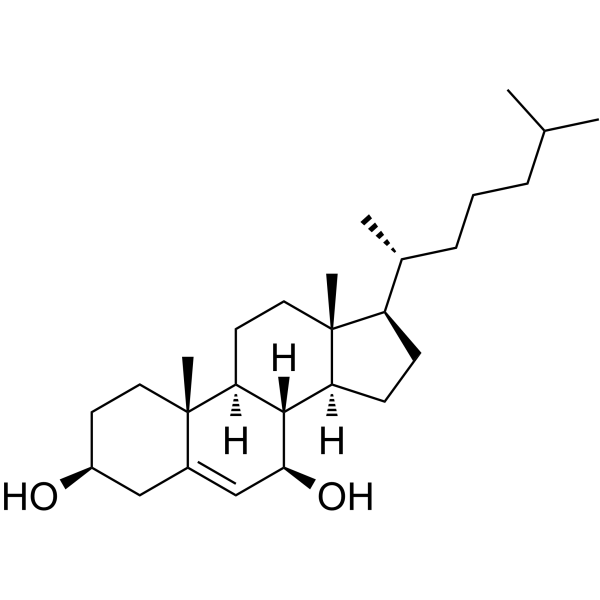Dimethyl sulfoxide prevents 7β-hydroxycholesterol-induced apoptosis by preserving lysosomes and mitochondria.
Amit Laskar, Xi-Ming Yuan, Wei Li
文献索引:J. Cardiovasc. Pharmacol. 56(3) , 263-7, (2010)
全文:HTML全文
摘要
Dimethyl sulfoxide (DMSO) is a widely used vehicle for water-insoluble substances and exerts a wide range of pharmacologic effects including anti-inflammatory and free radical scavenging properties. Additionally, in an animal model, DMSO inhibited cholesterol-induced atherosclerosis. Despite such profound pharmacologic effects, mechanisms at the cellular level are not well understood. Atherogenic oxysterols, especially 7-oxysterols, are potent inducers of oxidative stress, cell apoptosis, and are elevated in human atherosclerotic lesions. In this study, we first investigated the effect of DMSO on 7beta-hydroxycholesterol-induced apoptosis of U937 cells and then focused on its influences on production of reactive oxygen species, lysosomal, and mitochondrial membrane permeability. Our results revealed that DMSO protected U937 cells against 7beta-hydroxycholesterol-induced cell death by preventing lysosomal and mitochondrial membrane permeabilization and reactive oxygen species production. Our results also emphasize the necessity for appropriate solvent control groups in experimental models in which DMSO has been used to examine drug effect or identify pathways.
相关化合物
| 结构式 | 名称/CAS号 | 分子式 | 全部文献 |
|---|---|---|---|
 |
7β-羟基胆固醇
CAS:566-27-8 |
C27H46O2 |
|
Dietary indicaxanthin from cactus pear (Opuntia ficus-indica...
2015-08-14 [Br. J. Nutr. 114 , 368-75, (2015)] |
|
Absence of correlation between oxysterol accumulation in lip...
2013-07-01 [Biochem. Pharmacol. 86(1) , 67-79, (2013)] |
|
[Cerebrotendinous xanthomatosis is a rare disorder, which re...
2013-01-28 [Ugeskr. Laeg. 175(5) , 285-6, (2013)] |
|
Similar pyruvate kinase modifications in glioblastoma cells ...
2013-07-01 [Biochem. Pharmacol. 86(1) , 161-7, (2013)] |
|
7beta-hydroxycholesterol induces natural killer cell death v...
2009-01-01 [Free Radic. Res. 43(11) , 1072-9, (2009)] |